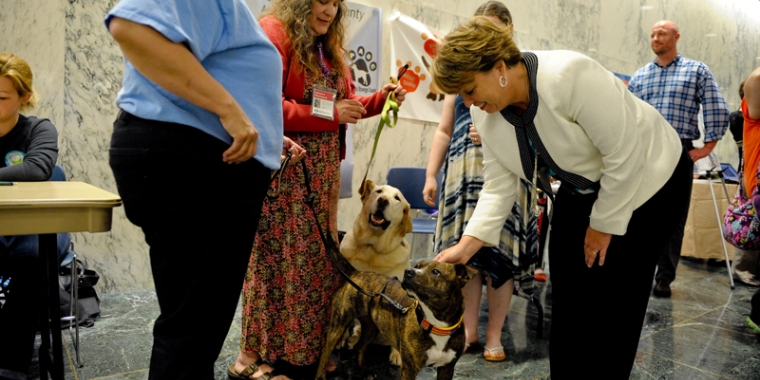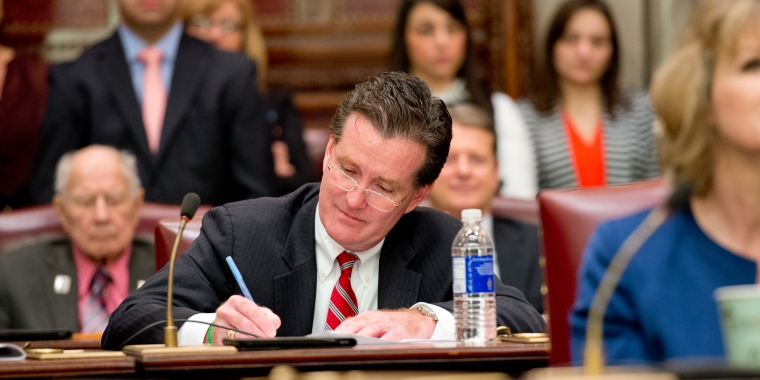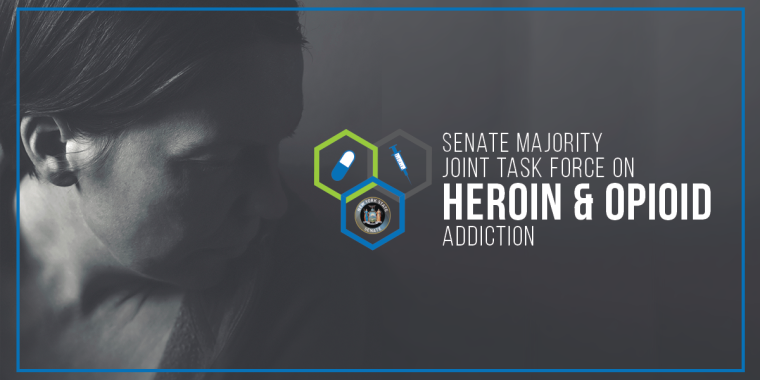
Senator Flanagan Joins Colleagues For Annual Animal Advocacy Day
John J. Flanagan
June 3, 2015

Majority Leader John Flanagan (2nd Senate District) today joined his colleagues in the New York State Senate for the annual Animal Advocacy Day. The event brings together lawmakers, law enforcement, and hundreds of pet owners and advocates to raise awareness of important animal issues.
As part of this annual day celebrating animal rights, the Senate approved several pieces of legislation that further protect animals from harm and cruelty.
Majority Leader Flanagan said, “The Legislature’s annual Animal Advocacy Day is significant because it gives my colleagues and me the opportunity to show the public that the protection of animal welfare is an important issue. The bills we passed today help keep our pets, service animals, and other companion animals safer and recognize their roles as members of our families and contributors to our communities.”
Senator Phil Boyle (4th Senate District), Senate co-sponsor of Animal Advocacy Day, said “Animal Advocacy Day is an important annual event for the Legislature to come together to be a voice for our furry and feathered friends. I'm so pleased to join with Assemblyman Jim Tedisco, Senator Sue Serino, and hundreds of advocates as we send a message to protect all animals in New York.”
Senator Sue Serino (41st Senate District), Senate co-sponsor of Animal Advocacy Day, said, “Like many New Yorkers, I consider my animals, Buddy and Ace, an extension of my family. Their health and safety – and the wellness of animals across New York – are a high priority for me and I am proud to be co-sponsoring an event that gives them a real voice and raises awareness for the issues that impact their lives each and every day.”
The bills passed today include:
S4641 would increase the potential jail time, from two years to four, when acts of cruelty against animals are committed in front of children. Minors who are forced to witness harmful acts against animals may endure psychological and emotional distress – and there’s the potential risk that a child’s sense of judgment and ethical conduct could be damaged in the process;
S410 would increase the maximum fine for the misdemeanor of abandonment of animals from $1,000 to $2,000;
S423 would make the theft of a pet a crime of grand larceny in the fourth degree – a class E felony;
S2102 would increase the penalties for leaving a companion animal in a vehicle during times of extreme hot or cold temperatures. This legislation increases the penalties to $250-$500 for the first offense and to $500-$1,000 for second and subsequent offenses. It also permits police officers to remove animals from vehicles when they face serious physical injury or death;
S3850 would allow domestic companion animals to board any public transportation or public transportation service in the event of a state of emergency and evacuation. The New York State Pet Evacuation Transportation and Sheltering Act of 2006 (PETS ACT) requires New York’s disaster preparedness plan to include programs to assist household pets and service animals in the event of a disaster. This legislation would coincide with recently-enacted New Jersey law to provide the same protections to residents of both states;
S98 the ‘Research Animal Retirement Act’ would require dogs and cats that have worked in higher education research facilities or facilities that provide research in collaboration with a higher education institutions to be offered for placement with non-profit animal rescues and shelter organizations prior to euthanization;
S3826 would establish March 13 as “K9 Veterans Day.” The official K9 Corps was created on March 13, 1942. K9 dogs have served many jobs in all of this nation’s wars, having been employed by the U.S. Military from World War I to present conflicts;
S4119A would extend the expiration date of the one day free admission policy for the Bronx Zoo, set to expire on July 1, 2015, for five years to July 1, 2020. This bill would allow the Bronx Zoo to reserve at least one day per week as a free admission day to the general public.
S4990 would allow paramedics to transport injured law enforcement canines to the nearest animal hospital or veterinary clinic when they are injured in the line of duty. Under current law, paramedics may face severe penalties if they care for an injured police dog whose police handler is unharmed. This bill would authorize the care these service dogs need in the event of life-threatening injury; and
S4265 would remove the term “serious” from the “serious physical injury” language in the felony animal cruelty statute. This measure would close a legal loophole to ensure that perpetrators cannot be given a lesser punishment because the severity of the animal’s injury is not up for interpretation.
All of the bills have been sent to the Assembly.



